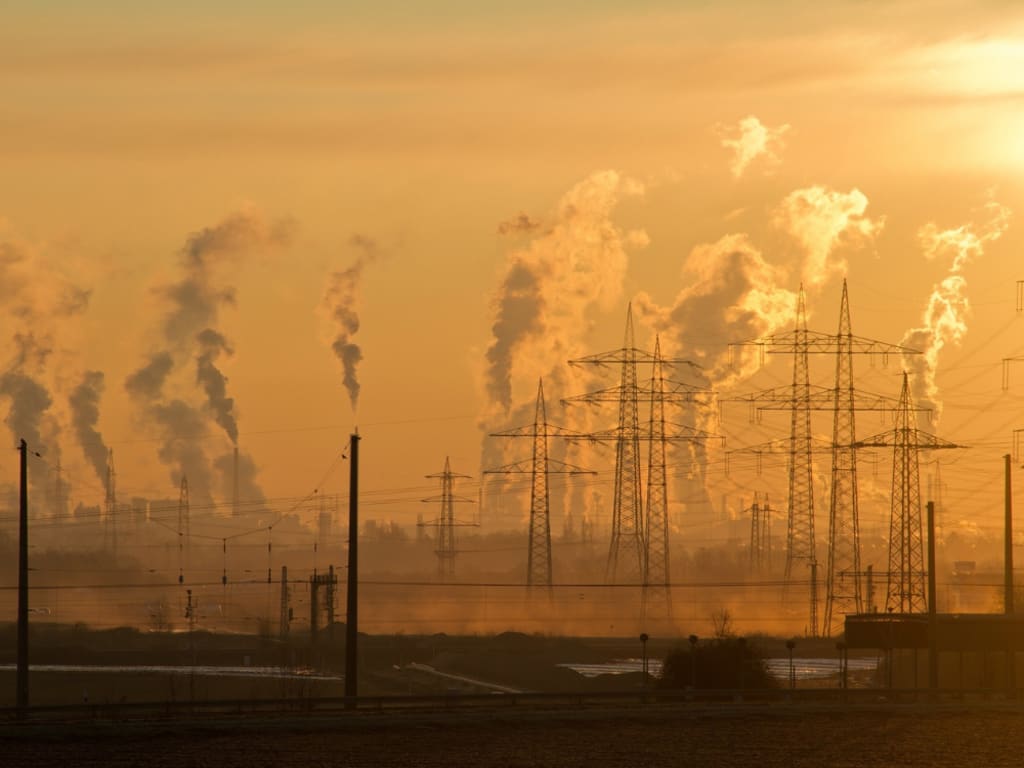he Effect of Air Pollution on Human Health and What We Can Do About It
Breathing Cleaner Air: Exploring the Detrimental Impact of Air Pollution on Human Health and Empowering Action for Cleaner Environments

Air pollution is a pressing global issue that affects billions of people worldwide. It is a result of various human activities, such as industrial emissions, vehicle exhaust, burning of fossil fuels, and the release of pollutants from residential sources. The impact of air pollution on human health is significant and wide-ranging, leading to a range of respiratory, cardiovascular, and other health problems. In this article, we will explore the effects of air pollution on human health and discuss actionable steps we can take to mitigate this growing problem.
- Respiratory Diseases
Air pollution has a profound impact on respiratory health. Fine particulate matter (PM2.5), nitrogen dioxide (NO2), sulfur dioxide (SO2), and ozone (O3) are among the pollutants that can irritate and inflame the respiratory system. Prolonged exposure to these pollutants can increase the risk of respiratory conditions such as asthma, bronchitis, chronic obstructive pulmonary disease (COPD), and respiratory infections.
- Cardiovascular Effects
Air pollution is also associated with cardiovascular diseases. Particulate matter and certain gases, such as nitrogen oxide (NOx) and carbon monoxide (CO), can enter the bloodstream through inhalation and trigger inflammation, oxidative stress, and damage to blood vessels. Long-term exposure to air pollution increases the risk of heart attacks, strokes, high blood pressure, and other cardiovascular conditions.
- Impaired Lung Development in Children
Children exposed to high levels of air pollution may experience impaired lung development, leading to long-term health consequences. Exposure to pollutants during childhood can hinder lung growth, increase the risk of respiratory problems throughout life, and contribute to reduced lung function.
- Increased Risk of Cancer
Certain air pollutants, such as benzene, formaldehyde, and polycyclic aromatic hydrocarbons (PAHs), are classified as carcinogens. Prolonged exposure to these pollutants increases the risk of developing lung cancer, as well as other types of cancer, including bladder, liver, and skin cancer.
- Neurological and Cognitive Effects
Emerging research suggests that air pollution can have adverse effects on the central nervous system. Fine particulate matter and other pollutants can enter the brain through inhalation, triggering inflammation, oxidative stress, and neuronal damage. This exposure has been associated with cognitive decline, neurodevelopmental disorders in children, and an increased risk of neurodegenerative diseases such as Alzheimer's and Parkinson's.
- Adverse Pregnancy Outcomes
Air pollution poses risks to maternal and fetal health. Pregnant women exposed to high levels of air pollution are at an increased risk of complications such as preterm birth, low birth weight, and developmental issues in children. Air pollutants can cross the placenta, potentially impacting the fetus's health and long-term well-being.
- Allergies and Respiratory Symptoms
Air pollution can exacerbate allergies and respiratory symptoms in individuals with pre-existing conditions. Pollutants can irritate the airways, trigger allergic reactions, and worsen symptoms in people with allergies, hay fever, or respiratory conditions like asthma.
- Mental Health Implications
Recent studies have shown associations between air pollution and mental health problems. Long-term exposure to air pollutants, particularly fine particulate matter, has been linked to an increased risk of depression, anxiety, and other mental health disorders.
Mitigating Air Pollution and Protecting Human Health
To address the harmful effects of air pollution, collective efforts are needed at individual, societal, and governmental levels:
- Transition to Clean and Renewable Energy: Shifting away from fossil fuels and embracing renewable energy sources can significantly reduce air pollutant emissions from power generation, transportation, and industry.
- Improve Industrial Emissions Controls: Implementing stringent emissions standards, promoting cleaner production techniques, and using advanced technologies can help reduce industrial pollution.
- Enhance Transportation Strategies: Promoting sustainable transportation options such as electric vehicles, improving public transportation networks, and creating pedestrian and cycling-friendly infrastructure can reduce vehicle emissions and improve air quality in urban areas.
- Strengthen Air Quality Regulations: Governments should enact and enforce robust air quality regulations to limit pollutant emissions, monitor air quality, and promote the use of cleaner technologies and practices.
- Encourage Green Spaces: Increasing the availability of green spaces, parks, and urban forests can help mitigate air pollution by absorbing pollutants and improving air quality in urban environments.
- Support Clean Cooking Solutions: Promoting clean cooking technologies and providing access to cleaner fuels in households, particularly in developing countries, can reduce the health risks associated with indoor air pollution.
- Raise Awareness and Education: Public awareness campaigns and educational programs can help individuals understand the health risks of air pollution and adopt practices that contribute to cleaner air, such as reducing personal exposure and supporting clean air initiatives.
- Collaborative International Efforts: Air pollution is a global issue that requires international cooperation. Governments, organizations, and individuals must collaborate to share best practices, technologies, and resources to address air pollution on a global scale.
The impact of air pollution on human health is undeniable. From respiratory and cardiovascular diseases to neurological effects and adverse pregnancy outcomes, the consequences of air pollution are far-reaching. By taking collective action, adopting cleaner technologies, implementing effective policies, and raising awareness, we can mitigate air pollution and protect human health. Every effort to reduce air pollution contributes to a healthier future for ourselves and future generations.
Enjoyed the read? Show your support for my future pieces with a small contribution. Every gift counts!
About the Creator
Gokhan Polard
As an experienced ERC Referral Specialist, my primary dedication lies in assisting businesses in the journey towards financial success. https://ercsolutionshub.com/






Comments
There are no comments for this story
Be the first to respond and start the conversation.